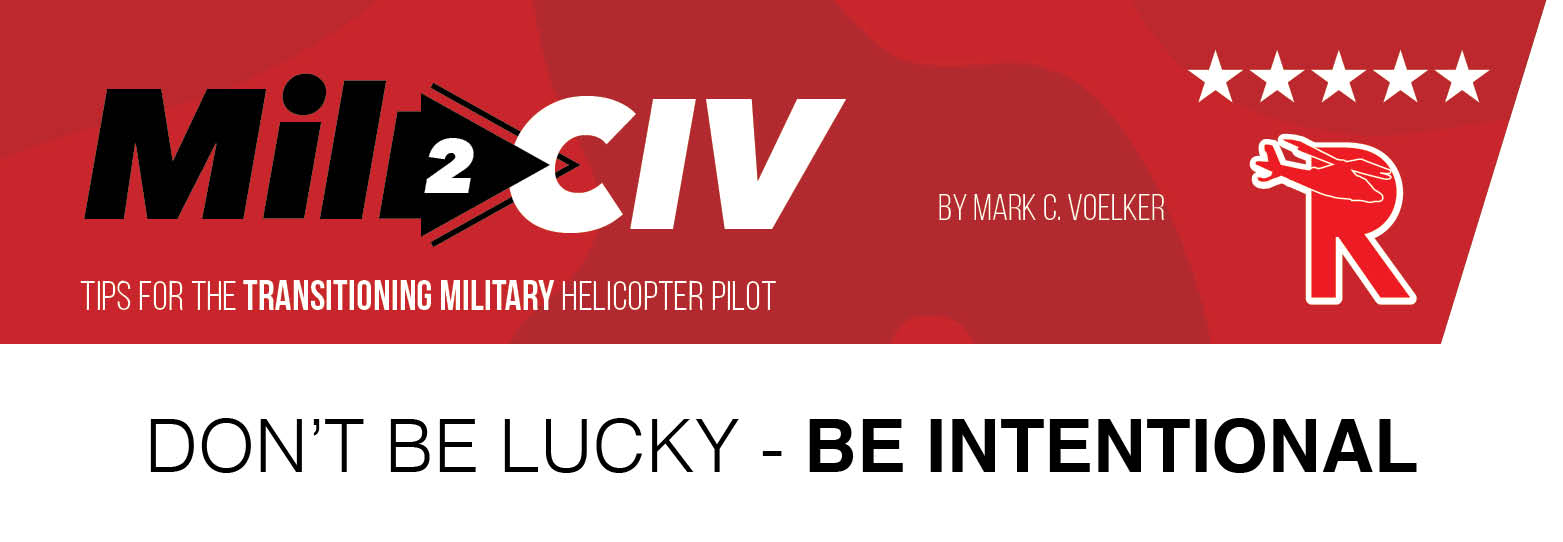|
Oct
21
2024
|
|
Posted 1 years 116 days ago ago by Admin
|
|

When I was commissioned as an officer in the Marines, I had no intention of staying in beyond the required time commitment that I had to fulfill, but life as a Cobra helicopter pilot grew on me. Supporting our Marines on the ground was an awesome responsibility and one that we all took quite seriously. The military provides great training, support and mission focus – an entire system that we take for granted at times. I had no plans to continue flying post-service, but time and space aligned. I was not only able to stay in the cockpit, but to do so in another model of Cobra that was retrofitted for firefighting operations. I got to do nearly the same job without being shot at! Was I fully prepared to make the transition? In my mind, I was more than ready to leave “Big Green” behind and take on this challenging new mission, but there was a lot more luck than planning. What I would like to offer are just a couple points that may require less luck and for you as you make your transition in a more thoughtful and intentional way.
My having a commercial fixed- and rotary-wing license at all was a fluke. Completing flight school was my primary concern in Pensacola, Florida. Once done, a friend approached me with a flier that offered a one-day session to obtain both FAA certificates through equivalency and a written exam. I only went because I had nothing else to do. Had I not done this, I likely would not have continued flying after retirement. I now had my commercial licenses, but I did no “civilian flying” during my military career. If you have even the remotest idea that you will fly following your service, obtain your certificate with intention and, if the opportunity is present, use it to maintain all of your skills. This requires adhering to the next necessary step – a valid medical certification.
The military ensures that you meet the physical standards required to be an aviator with an annual flight physical. I only received my initial FAA Class II medical because an FAA certified military flight surgeon offered it as part of the annual physical. If you don’t have this luxury, find an AME in your area while you are still in and spend the money to maintain your medical annually. This builds a rapport with a doctor, history within the system and familiarity for how the FAA medical system works well before it becomes the system you depend on. I was hired as a contract pilot for the Forest Service months before I officially retired, yet no one told me that I had to obtain a Class II medical before my flight training in this new capacity. They made assumptions that I would just know this. Fortunately, I listened to my intuition and had taken care of it on my own. This leads to what was most revelatory about transitioning from military to commercial flying - the “support system” or lack thereof.
How is commercial flying different from the military? In the commercial world, the mission for many companies means employing their assets safely, efficiently and effectively, yet in the most financially profitable way possible. Certainly, that’s a different “bottom line” than in the military. In commercial flying, you are the sole operator/decision-maker in the aircraft. Ensure that every decision you are making is right by you first, then the company. You are the only one looking out for you. Making this clear with the operator who hires you is of utmost importance, and, in nearly every case, the mutual respect will pay off.
A planned transition makes for a less stressful one. Being intentional is essential.
About the Author: Mark Voelker flew AH-1W SuperCobra helicopters for the U.S. Marine Corps for 18.5 of his 20 years of service. With multiple deployments aboard naval ships in the Western Pacific and two deployments in support of Operation Iraqi Freedom, his military flight time of 4,800+ hours covered the gamut from basic familiarization and instrument flying, operational test and evaluation and combat operations. Following retirement from the Marine Corps, Voelker flew for the U.S. Forest Service, piloting the AH-1F FireWatch Cobra for 13 years in support of wildland
firefighting operations around the western United States.
READ MORE ROTOR PRO: https://justhelicopters.com/Magazine
WATCH ROTOR PRO YOUTUBE CHANNEL: https://buff.ly/3Md0T3y
You can also find us on
Instagram - https://www.instagram.com/rotorpro1
Facebook - https://www.facebook.com/rotorpro1
Twitter - https://twitter.com/justhelicopters
LinkedIn - https://www.linkedin.com/company/rotorpro1